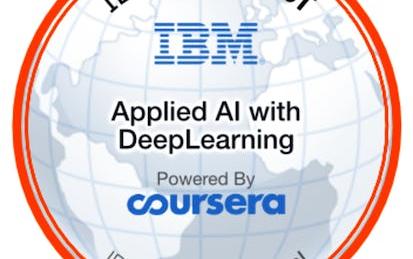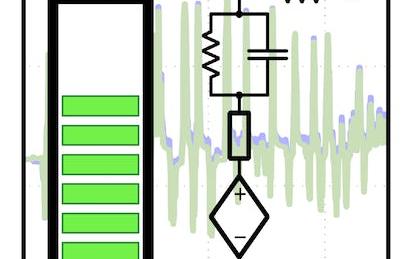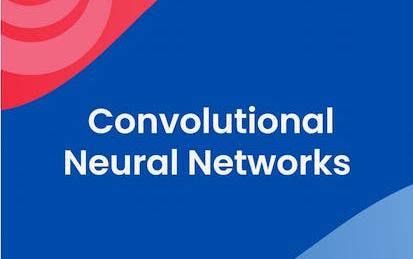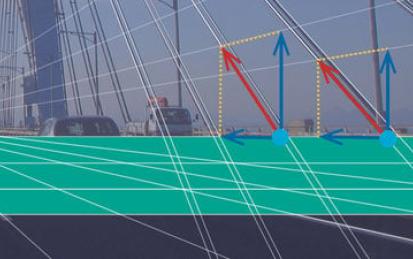

Our Courses

Predictive Modeling and Analytics
Welcome to the second course in the Data Analytics for Business specialization! This course will introduce you to some of the most widely used predictive modeling techniques and their core principles. By taking this course, you will form a solid foundation of predictive analytics, which refers to tools and techniques for building statistical or machine learning models to make predictions based on data. You will learn how to carry out exploratory data analysis to gain insights and prepare data for predictive modeling, an essential skill valued in the business.
-
Course by

-
 11 hours
11 hours
-
 English
English

Introduction to Self-Driving Cars
Welcome to Introduction to Self-Driving Cars, the first course in University of Toronto’s Self-Driving Cars Specialization. This course will introduce you to the terminology, design considerations and safety assessment of self-driving cars.
-
Course by

-
 Self Paced
Self Paced
-
 35 hours
35 hours
-
 English
English

Techniques of Design-Oriented Analysis
This course can also be taken for academic credit as ECEA 5706, part of CU Boulder’s Master of Science in Electrical Engineering degree. This is Course #2 in the Modeling and Control of Power Electronics course sequence. The course is focused on techniques of design-oriented analysis that allow you to quickly gain insights into models of switching power converters and to translate these insights into practical converter designs. The design-oriented techniques covered are the Extra Element Theorem and the N-Extra Element Theorem (N-EET).
-
Course by

-
 Self Paced
Self Paced
-
 12 hours
12 hours
-
 English
English

Robotics: Aerial Robotics
How can we create agile micro aerial vehicles that are able to operate autonomously in cluttered indoor and outdoor environments? You will gain an introduction to the mechanics of flight and the design of quadrotor flying robots and will be able to develop dynamic models, derive controllers, and synthesize planners for operating in three dimensional environments. You will be exposed to the challenges of using noisy sensors for localization and maneuvering in complex, three-dimensional environments.
-
Course by

-
 Self Paced
Self Paced
-
 18 hours
18 hours
-
 English
English

Setting Expectations & Assessing Performance Issues
If you don’t know where you are going, any road will take you there. One of the most important roles of a manager is to ensure everyone knows the destination. The most effective managers set expectations and assess their employees’ performance against those expectations, and take a coaching approach to helping them get to the destination. That’s exactly what you’ll learn to do in this course! You will explore how to collaboratively develop expectations with those you lead.
-
Course by

-
 Self Paced
Self Paced
-
 18 hours
18 hours
-
 English
English
Functional Programming Principles in Scala
Functional programming is becoming increasingly widespread in industry. This trend is driven by the adoption of Scala as the main programming language for many applications. Scala fuses functional and object-oriented programming in a practical package. It interoperates seamlessly with both Java and Javascript. Scala is the implementation language of many important frameworks, including Apache Spark, Kafka, and Akka.
-
Course by

-
 Self Paced
Self Paced
-
 56 hours
56 hours
-
 English
English

Applied AI with DeepLearning
>>> By enrolling in this course you agree to the End User License Agreement as set out in the FAQ. Once enrolled you can access the license in the Resources area
-
Course by

-
 Self Paced
Self Paced
-
 25 hours
25 hours
-
 English
English
VLSI CAD Part I: Logic
A modern VLSI chip has a zillion parts -- logic, control, memory, interconnect, etc. How do we design these complex chips? Answer: CAD software tools. Learn how to build thesA modern VLSI chip is a remarkably complex beast: billions of transistors, millions of logic gates deployed for computation and control, big blocks of memory, embedded blocks of pre-designed functions designed by third parties (called “intellectual property” or IP blocks). How do people manage to design these complicated chips?
-
Course by

-
 Self Paced
Self Paced
-
 23 hours
23 hours
-
 English
English

Advanced Machine Learning and Signal Processing
>>> By enrolling in this course you agree to the End User License Agreement as set out in the FAQ. Once enrolled you can access the license in the Resources area <<<\n\nThis course, Advanced Machine Learning and Signal Processing, is part of the IBM Advanced Data Science Specialization which IBM is currently creating and gives you easy access to the invaluable insights into Supervised and Unsupervised Machine Learning Models used by experts in many field relevant disciplines.
-
Course by

-
 28 hours
28 hours
-
 English
English

Matrix Algebra for Engineers
This course is all about matrices, and concisely covers the linear algebra that an engineer should know. The mathematics in this course is presented at the level of an advanced high school student, but it is recommended that students take this course after completing a university-level single variable calculus course. There are no derivatives or integrals involved, but students are expected to have a basic level of mathematical maturity.
-
Course by

-
 Self Paced
Self Paced
-
 20 hours
20 hours
-
 English
English

Introduction to Complex Analysis
This course provides an introduction to complex analysis which is the theory of complex functions of a complex variable. We will start by introducing the complex plane, along with the algebra and geometry of complex numbers, and then we will make our way via differentiation, integration, complex dynamics, power series representation and Laurent series into territories at the edge of what is known today. Each module consists of five video lectures with embedded quizzes, followed by an electronically graded homework assignment. Additionally, modules 1, 3, and 5 also contain a peer assessment.
-
Course by

-
 Self Paced
Self Paced
-
 27 hours
27 hours
-
 English
English

State Estimation and Localization for Self-Driving Cars
Welcome to State Estimation and Localization for Self-Driving Cars, the second course in University of Toronto’s Self-Driving Cars Specialization. We recommend you take the first course in the Specialization prior to taking this course. This course will introduce you to the different sensors and how we can use them for state estimation and localization in a self-driving car.
-
Course by

-
 Self Paced
Self Paced
-
 27 hours
27 hours
-
 English
English
Model Thinking
We live in a complex world with diverse people, firms, and governments whose behaviors aggregate to produce novel, unexpected phenomena. We see political uprisings, market crashes, and a never ending array of social trends. How do we make sense of it? Models. Evidence shows that people who think with models consistently outperform those who don't. And, moreover people who think with lots of models outperform people who use only one. Why do models make us better thinkers?
-
Course by

-
 Self Paced
Self Paced
-
 27 hours
27 hours
-
 English
English

Exploratory Data Analysis for Machine Learning
This first course in the IBM Machine Learning Professional Certificate introduces you to Machine Learning and the content of the professional certificate. In this course you will realize the importance of good, quality data.
-
Course by

-
 Self Paced
Self Paced
-
 14 hours
14 hours
-
 English
English

Visual Perception for Self-Driving Cars
Welcome to Visual Perception for Self-Driving Cars, the third course in University of Toronto’s Self-Driving Cars Specialization. This course will introduce you to the main perception tasks in autonomous driving, static and dynamic object detection, and will survey common computer vision methods for robotic perception. By the end of this course, you will be able to work with the pinhole camera model, perform intrinsic and extrinsic camera calibration, detect, describe and match image features and design your own convolutional neural networks.
-
Course by

-
 31 hours
31 hours
-
 English
English

Natural Language Processing with Attention Models
In Course 4 of the Natural Language Processing Specialization, you will: a) Translate complete English sentences into Portuguese using an encoder-decoder attention model, b) Build a Transformer model to summarize text, c) Use T5 and BERT models to perform question-answering. By the end of this Specialization, you will have designed NLP applications that perform question-answering and sentiment analysis, and created tools to translate languages and summarize text! Learners should have a working knowledge of machine learning, intermediate Python including experience with a deep learning fra
-
Course by

-
 Self Paced
Self Paced
-
 35 hours
35 hours
-
 English
English

Mathematics for Machine Learning: Linear Algebra
In this course on Linear Algebra we look at what linear algebra is and how it relates to vectors and matrices. Then we look through what vectors and matrices are and how to work with them, including the knotty problem of eigenvalues and eigenvectors, and how to use these to solve problems.
-
Course by

-
 Self Paced
Self Paced
-
 19 hours
19 hours
-
 English
English

The Finite Element Method for Problems in Physics
This course is an introduction to the finite element method as applicable to a range of problems in physics and engineering sciences. The treatment is mathematical, but only for the purpose of clarifying the formulation. The emphasis is on coding up the formulations in a modern, open-source environment that can be expanded to other applications, subsequently. The course includes about 45 hours of lectures covering the material I normally teach in an introductory graduate class at University of Michigan.
-
Course by

-
 Self Paced
Self Paced
-
 62 hours
62 hours
-
 English
English

Introduction to Linear Models and Matrix Algebra
Learn to use R programming to apply linear models to analyze data in life sciences.
-
Course by

-
 Self Paced
Self Paced
-
 12
12
-
 English
English

Doğrusal Cebir I: Uzaylar ve İşlemciler / Linear Algebra I: Spaces and Operators
Bu ders doğrusal cebir ikili dizinin birincisidir. Doğrusal uzaylar kavramı, doğrusal işlemciler, matris gösterimleri ve denklem sistemlerinin hesaplanabilmesi için temel araçlar vb. konuları içermektedir.
-
Course by

-
 Self Paced
Self Paced
-
 Turkish
Turkish

College Algebra
This College Algebra course will cover fundamental concepts of algebra required to interpret a variety of functions and equations.
This course is eligible for Audit and Verified Certificate only.
-
Course by

-
 Self Paced
Self Paced
-
 100
100
-
 English
English

Linear Algebra II: Matrices and Linear Transformations
This course provides an overview of bachelor-level linear algebra. You will review all the concepts and practice and refresh the skills related to matrices and linear transformations.
-
Course by

-
 Self Paced
Self Paced
-
 21
21
-
 English
English

Linear Algebra I: Vectors and Linear Equations
This course provides an overview of bachelor-level linear algebra. You will review all the concepts and practice and refresh the skills related to vectors and linear equations.
-
Course by

-
 Self Paced
Self Paced
-
 27
27
-
 English
English

Advanced Linear Algebra: Foundations to Frontiers
Learn advanced linear algebra for computing.
-
Course by

-
 Self Paced
Self Paced
-
 English
English

Linear Algebra - Foundations to Frontiers
Learn the mathematics behind linear algebra and link it to matrix software development.
-
Course by

-
 Self Paced
Self Paced
-
 English
English



